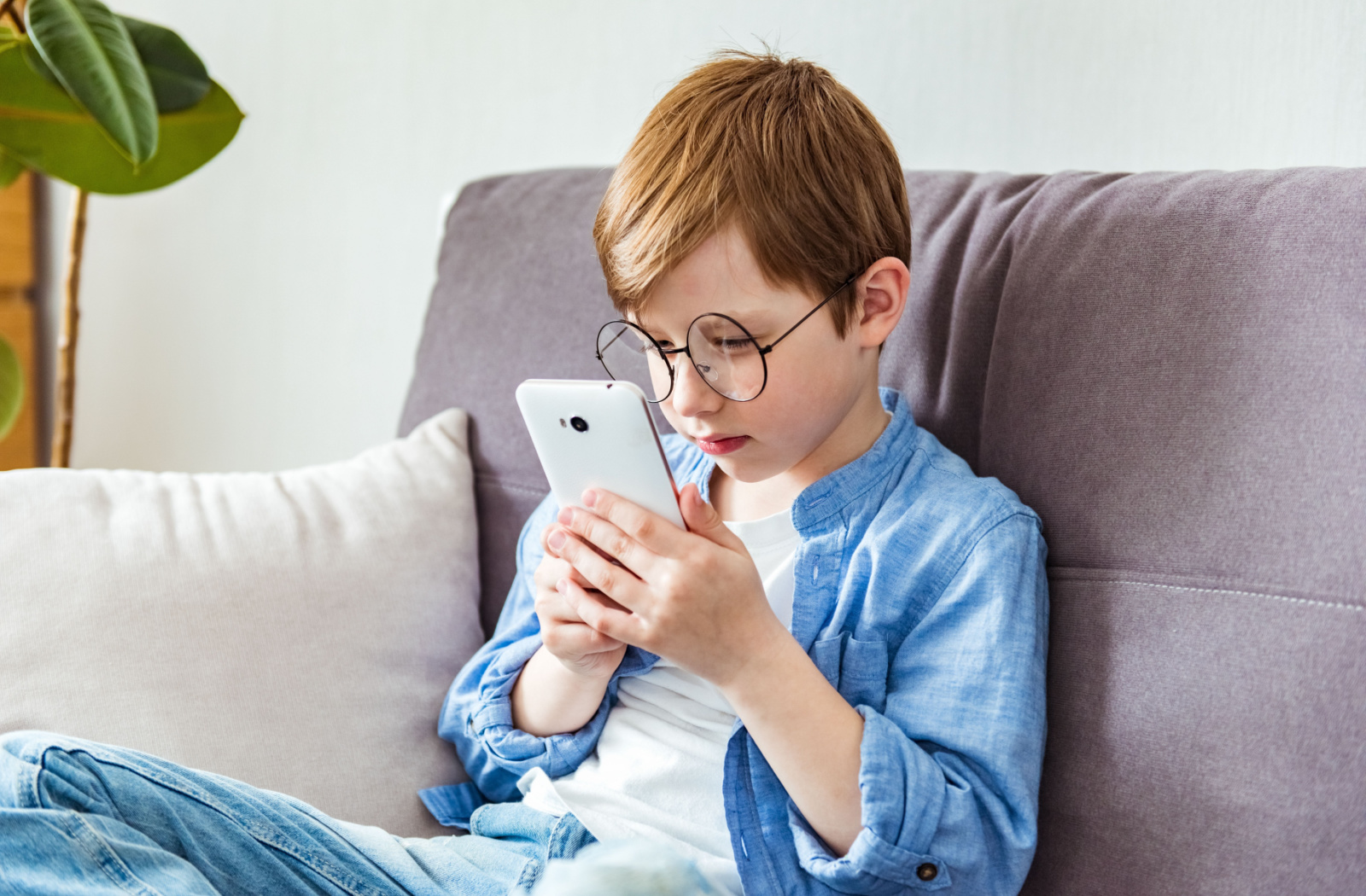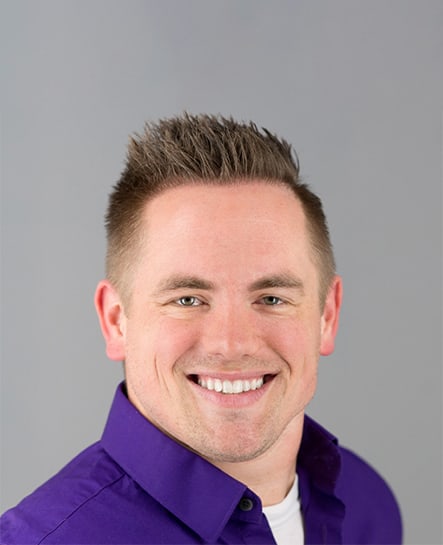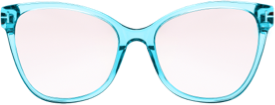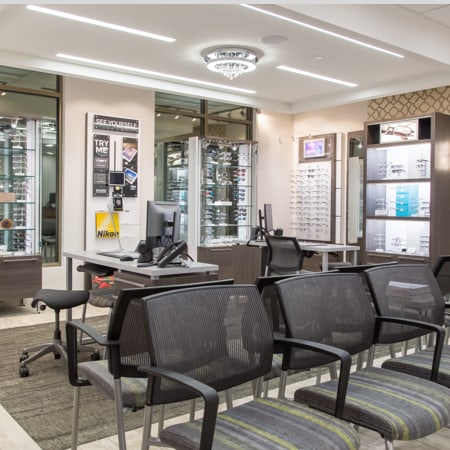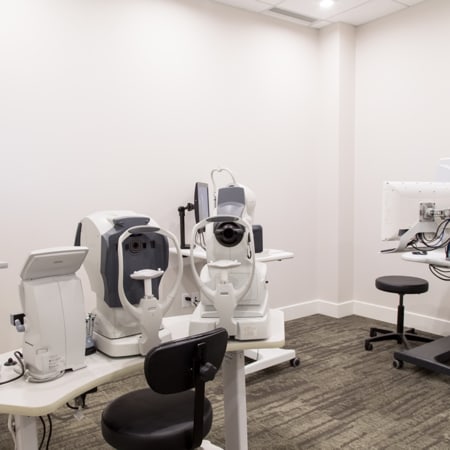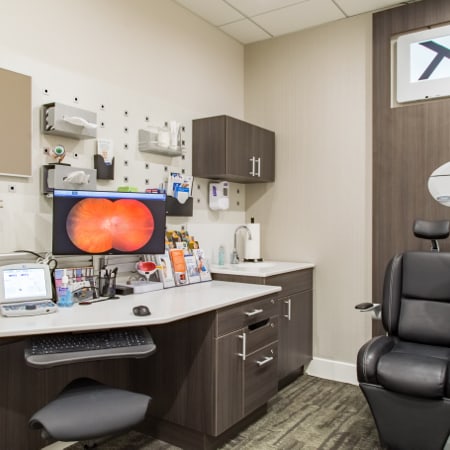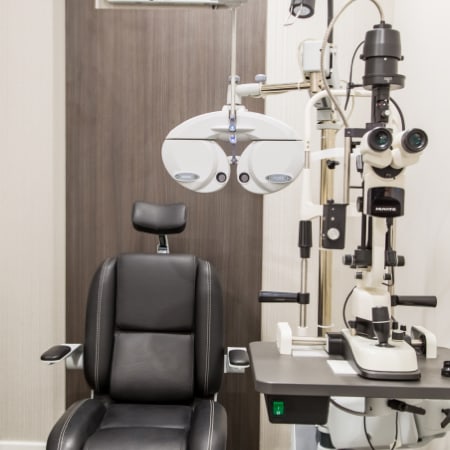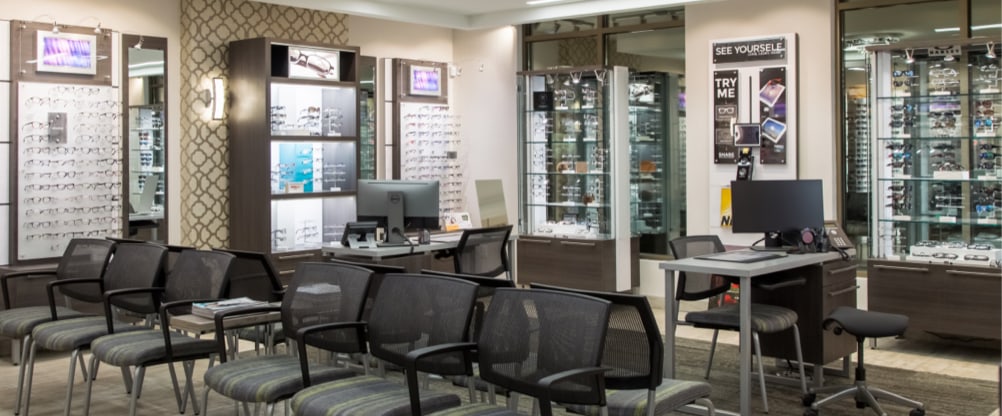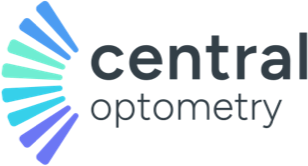Screen time and close-up work have become a major part of our daily lives. And while evidence of the connection between screen time and myopia, or nearsightedness, is mixed, there’s no denying myopia is becoming a more common condition worldwide. As a parent, you want to support your child’s healthy vision, and for kids with myopia, one of the best ways is with myopia control.
If detected early, myopia can be controlled through appropriate management and treatment options including:
- Ortho-K
- Atropine Eye Drops
- MiSight Daily Contacts
- ACUVUE Abiliti Soft Contacts
- ZEISS MyoCare Lenses
Your vision care plan starts with a comprehensive eye exam.
What Is Myopia?
In normal eyes, light enters through the cornea, a transparent outer dome, and passes through the lens. Together, these structures focus the light onto the retina, a layer of cells at the back of the eye.
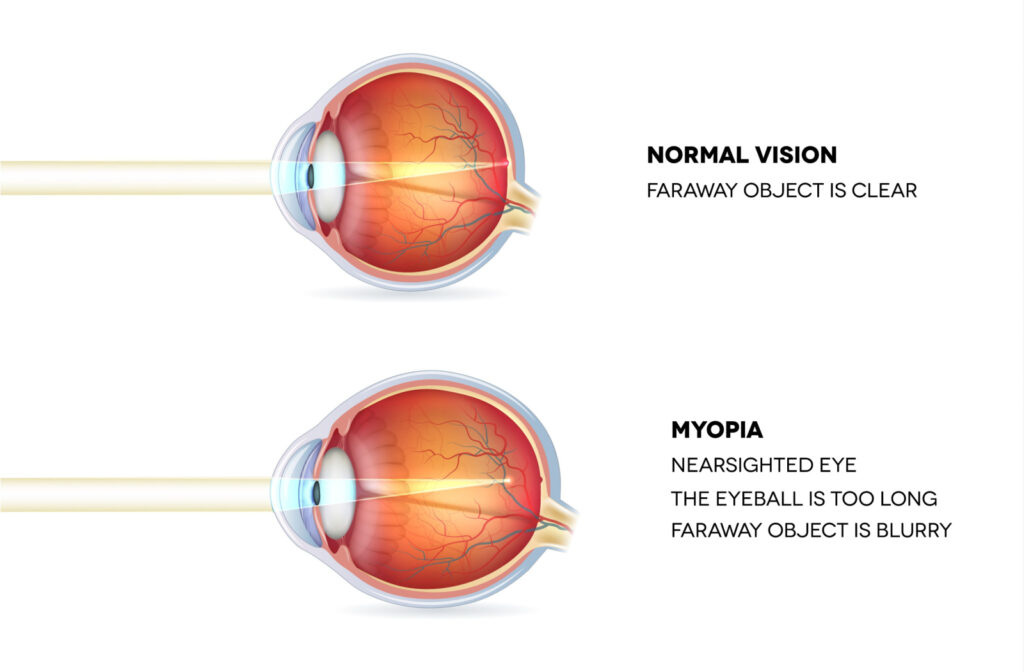
The retina contains cells that convert light into electrical signals that travel to the brain via the optic nerve. The brain then interprets these signals as images. This process happens in a flash, allowing us to see clearly.
Myopia, also known as nearsightedness, is a common vision problem that affects about 30% of Canadians. It occurs when the eye is too long or the cornea is too curved, which causes light to focus in front of the retina instead of on it. As a result, distant objects appear blurry, while close-up objects appear clear.
What Causes Myopia?
Scientists aren’t sure what causes myopia. It has both genetic and environmental factors, but it affects everyone differently. Some factors that can increase your child’s risk of developing myopia include:
- Having parents with myopia
- Performing large amounts of near work, such as reading or crafts
- Spending too much time on screens
- Not spending enough time outdoors
There’s no single cause behind myopia, and you shouldn’t restrict activities simply because they may contribute. Moderation is the key to everything, but these early years are vital. Myopia starts in childhood, and progresses fastest when you are young. Continuing to progress through teenage years and into adulthood.
Risks Associated with Myopia
Myopia isn’t a life-threatening condition, but it can significantly impact your child’s quality of life. Children with undiagnosed myopia may have trouble seeing the board at school, playing sports, or enjoying outdoor activities.
Moreover, myopia puts your child’s eyesight and vision at risk. Glasses or contacts are commonly used to correct nearsightedness and provide clear vision. The prescription strength of these lenses is measured in diopters.
If you have myopia and have trouble seeing distant objects, you likely need “minus” lenses, like -3.50 diopters. The higher the negative number, the stronger the correction required for clear vision. And every diopter matters.
With every increase of -1.00 diopter in prescription strength, a child’s chance of myopic macular degeneration increases by 67%.
As myopia progresses, it can become high myopia, an advanced form of myopia that requires a prescription of -6.00 diopters or more. Not only is this condition harder to correct, but it can lead to more severe eye diseases and conditions, such as:
- Cataracts
- Glaucoma
- Retinal detachment
- Myopic Macular Degeneration
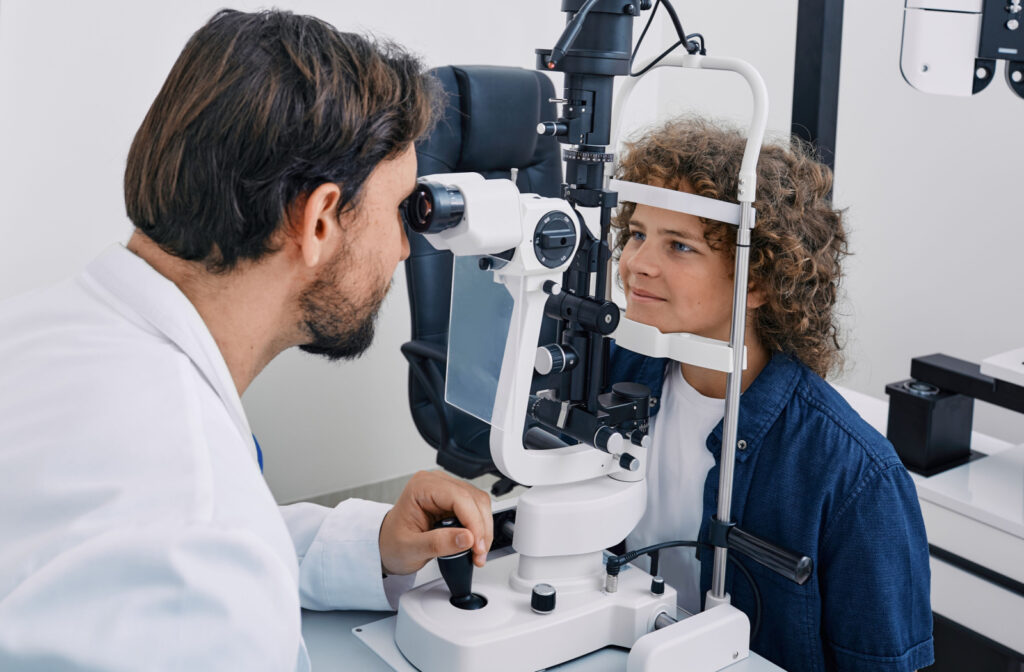
Managing & Treating Myopia
Myopia can’t be cured or reversed, but it can be managed with the help of your optometry team. Glasses and contact lenses are traditional ways to correct the blurry vision nearsightedness causes, but these corrective lenses will only change how light enters the eye. They won’t address the progression of myopia.
Managing myopia involves strategies that slow down myopia development in children while also providing clear vision. Research is ongoing, but your optometrist can suggest effective options.
Ortho-K Lenses
Orthokeratology (ortho-k) lenses are custom-made contact lenses your child wears overnight to gently reshape their cornea. Unlike traditional contact lenses, which correct vision as you wear them throughout the day, ortho-k lenses provide clear vision without glasses during the day simply by wearing them as you sleep.
Studies have shown that children who use ortho-k lenses at night experience around 50% less myopia progression during the first year of use.
The most significant benefit of Ortho-K lenses is the ability to give your child freedom from glasses and daily contact lens use, which can be inconvenient for young and active children.
Low-dose Atropine Drops
Atropine drops are commonly used to dilate the pupils and relax the eye muscles to get a better view of the eye during an eye exam. However, low-dose atropine drops can also slow down myopia progression in children.
Daily atropine eye drops with concentrations between 0.01%–0.05% have been shown to effectively reduce myopia progression in children as young as 4, making them a strong choice for kids too young for other myopia control methods.
Atropine is usually used in conjunction with myopia-controlling glasses or contact lenses. A recent study found that atropine and ortho-k used together are more effective at slowing myopia than when used as standalone treatments.
Peripheral Defocus Lenses & Contact Lenses
Multifocal lenses, sometimes referred to as peripheral defocus lenses, are specifically designed to slow down the progression of myopia. Multifocal lenses use varying prescriptions in one lens to correct vision while also telling the eyes to stop growing.
These typically use a central area of correction surrounded by rings of less powerful prescription strengths, putting peripheral vision out of focus. Imagine them like a bullseye, drawing the wearer’s focus to the middle.
MiSight and ACUVUE Abiliti are popular contact lenses for axial length reduction, to help slow myopia progression.
ZEISS Myocare are eyeglasses that use similar ring technology to change how light focuses in the eyes and manage myopia in children.
Myopia Control in London
Central Optometry can help control your child’s myopia with carefully constructed treatment plans tailored to their needs. Your child is unique, so their care should be, too. You can’t reverse myopia, but with your optometrist monitoring its progress through comprehensive eye exams and myopia control therapies, your child has a good chance at a bright and clear future.If your child has myopia, don’t wait! Book an eye exam today and ask about myopia control options.

